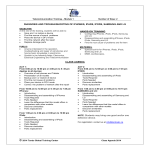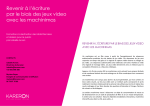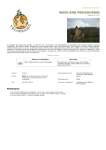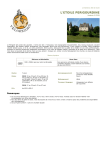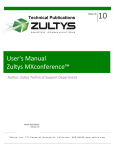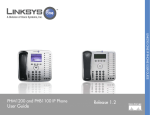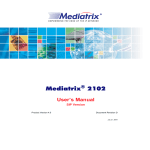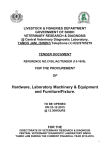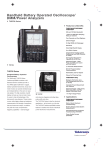Transcript
Industrial Electronic Training Number of Days: 5 DIAGNOSIS AND TROUBLESHOOTING OF ELECTRONIC CIRCUIT BOARDS WITHOUT THE AID OF SCHEMATIC DIAGRAM OBJECTIVE At the end of the training, students will be able to: Understand and implement various methods of testing of electronic components without schematic Break down circuit in their different functions. Test each function by the analysis of components (discrete, IC ...). Analyze Electronic Signal of components by mean of oscilloscope and characteristic tester. Analyze key component signals using the oscilloscope and tester features. TRAINING COURSE PARTCIPANTS Electronic Service Technicians, as well as Engineers interested in the operation, troubleshooting and repair of electronic equipment and printed circuit boards. Students in the following areas: Electronics, Electrical Engineering and telecommunication. HANDS-ON TRAINING Reading of printed circuit boards (PCB) Repairing of industrial electronic PCB MATERIEL: DMM, Function Generator, Oscilloscopes, Components Testers, Screwdrivers and Pliers CLASS AGENDA Day 1: 8:00 am to 2:00 pm or 2:00 pm to 8:00 pm FUNDAMENTALS OF ELECTRONICS: Components. (Discrete, analog principle of tests operation) Filters. (principle, rules, test) Power supplies Day 2: 8:00 am to 2:00 pm or 2:00 pm to 8:00 pm Components of integrated controls: Integrated Circuits Conversion: ADC / DAC. Multiplexer / De-multiplexer. Opto - electronics. Day 3: 8:00 am to 2:00 pm or 2:00 pm to 8:00 pm THE BASICS OF REPAIR: Troubleshooting methods. Schematic readings Overview of measurement devices © 2014 Tando Global Training Center Day 4: 8:00 am to 2:00 pm or 2:00 pm to 8:00 pm Component signals. Test of truth tables Circuit measurements. Study of circuits. Day 5: 8:00 am to 2:00 pm or 2:00 pm to 8:00 pm Introduction to the methodology of diagnosis and repair of electronic printed circuit boards (PCB). Lab repair of industrial electronic printed circuit boards. NOTE: Students may bring one good and/or one defective printed circuit board. For registration: contact us at [email protected] Class Agenda 2014
